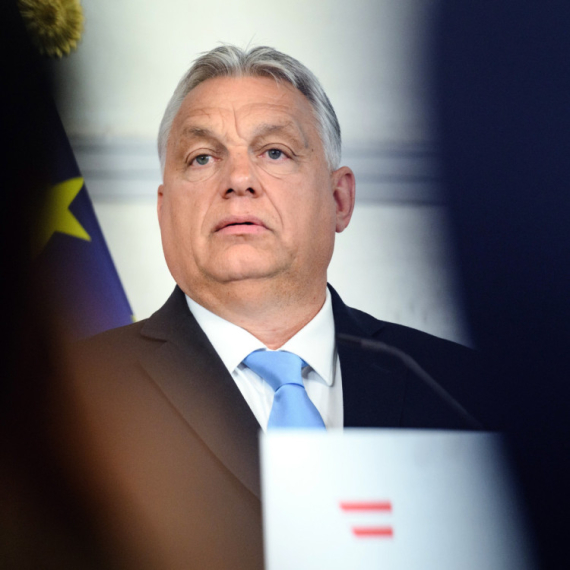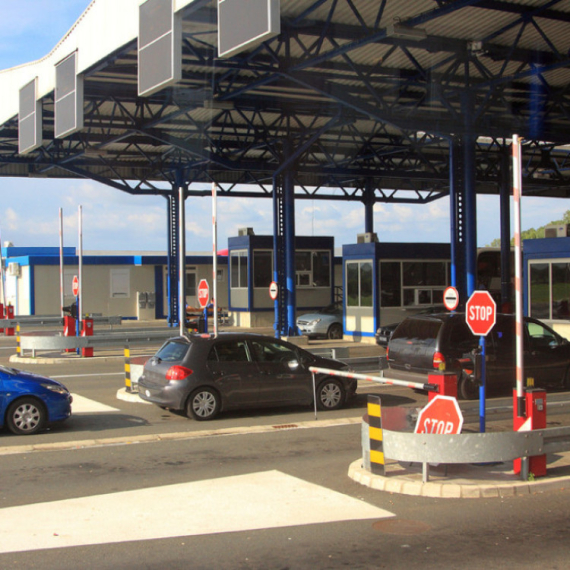Bildt: Vital for interim deal to kick in first
Swedish Foreign Minister Carl Bildt says Serbia’s application for EU candidate status will only be successful if the interim agreement is implemented first.
Tuesday, 15.09.2009.
09:24

Swedish Foreign Minister Carl Bildt says Serbia’s application for EU candidate status will only be successful if the interim agreement is implemented first. He said that potential EU candidates must first hold consultations with all EU member-states and the European Commission before submitting a membership application. Bildt: Vital for interim deal to kick in first European diplomatic sources say that Holland still believes that the interim agreement with Serbia should not begin implementation until Hague fugitive Ratko Mladic is arrested and extradited to the war crimes tribunal. Diplomatic sources in Brussels point out that there have been cases where prospective candidates did not have the support of the entire EU, but did have the support of the majority of the EU member-states and European Commission. Bildt told daily Vecernje Novosti that he was hopeful about abolishing visas for Serbian citizens by the beginning of next year. “As confirmed by the European Commission in May, Serbia has made significant progress in all fields and fulfilled the majority of conditions from the road map. If it continues making progress, Serbia will be entitled to visa liberalization in 2010,” the Swedish foreign minister said. He told the Belgrade daily that the final decision needed to be taken by the EU Council of Ministers at the end of the year after consultations with the European Parliament, when the exact date that liberalization will take effect will become known. As far as the interim agreement is concerned, Bildt reiterated that all 27 member-states had to approve its entry into force. “The constant progress in cooperation between Serbia and the International Court in The Hague will be the best argument to convince all the member-states to take such a decision. The unilateral implementation of the interim agreement by Serbia can also help speed up the process, provided that the European Commission’s report in October is generally positive,” he concluded. Meanwhile, Director of the Office for European Integration Milica Delevic told reportersin Belgrade today that she expected Serbia to submit its application for EU candidate status by the end of the year. “We are aware of the process that is needed to secure the support of our European partners, but we are also aware that there is a lot to do at home as well, in order for the application to be positively received,” Delevic said. She said that this was why Serbia had chosen to begin unilateral implementation of the interim trade agreement with the EU, which sent a signal that Serbia wanted to continue European integration and proved Serbia’s ability to meet obligations arising from this next step towards membership. “It is most important for us to wait for the progress report right now. We expect it to be more positive than the last one, in light of everything we’ve done,” Delevic said. Carl Bildt (FoNet, archive)
Bildt: Vital for interim deal to kick in first
European diplomatic sources say that Holland still believes that the interim agreement with Serbia should not begin implementation until Hague fugitive Ratko Mladić is arrested and extradited to the war crimes tribunal.Diplomatic sources in Brussels point out that there have been cases where prospective candidates did not have the support of the entire EU, but did have the support of the majority of the EU member-states and European Commission.
Bildt told daily Večernje Novosti that he was hopeful about abolishing visas for Serbian citizens by the beginning of next year.
“As confirmed by the European Commission in May, Serbia has made significant progress in all fields and fulfilled the majority of conditions from the road map. If it continues making progress, Serbia will be entitled to visa liberalization in 2010,” the Swedish foreign minister said.
He told the Belgrade daily that the final decision needed to be taken by the EU Council of Ministers at the end of the year after consultations with the European Parliament, when the exact date that liberalization will take effect will become known.
As far as the interim agreement is concerned, Bildt reiterated that all 27 member-states had to approve its entry into force.
“The constant progress in cooperation between Serbia and the International Court in The Hague will be the best argument to convince all the member-states to take such a decision. The unilateral implementation of the interim agreement by Serbia can also help speed up the process, provided that the European Commission’s report in October is generally positive,” he concluded.
Meanwhile, Director of the Office for European Integration Milica Delević told reportersin Belgrade today that she expected Serbia to submit its application for EU candidate status by the end of the year.
“We are aware of the process that is needed to secure the support of our European partners, but we are also aware that there is a lot to do at home as well, in order for the application to be positively received,” Delević said.
She said that this was why Serbia had chosen to begin unilateral implementation of the interim trade agreement with the EU, which sent a signal that Serbia wanted to continue European integration and proved Serbia’s ability to meet obligations arising from this next step towards membership.
“It is most important for us to wait for the progress report right now. We expect it to be more positive than the last one, in light of everything we’ve done,” Delević said.























































Komentari 15
Pogledaj komentare